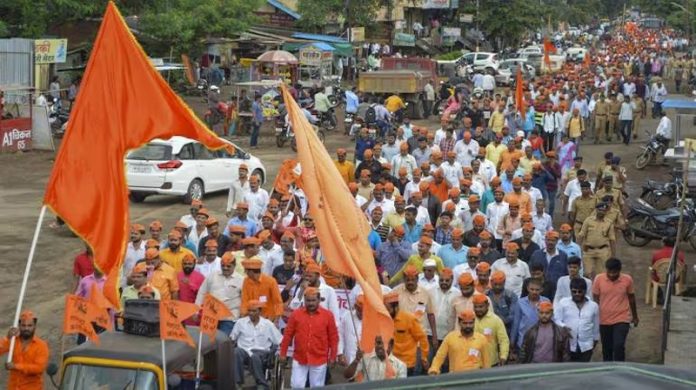MUMBAI, Oct 31: The Maharashtra cabinet on Tuesday made a recommendation to the state Backward Commission to undertake a survey and collect data to make the curative petition filed in the Supreme Court “error-free”, so that reservation can be granted to the Maratha community in the state, a minister said.
Chandrakant Patil, head of the state government’s sub-committee on Maratha reservation, gave this information while speaking to reporters here on Tuesday. “The state cabinet made a recommendation to the state Backward Commission to undertake necessary surveys and data collection to make the government’s curative petition in the Supreme Court error-free. With this, the state can contest vigorously in favour of awarding reservation benefits to the Maratha community in the state,” he said.
The cabinet also asked the commission to deploy all the required state machinery and rope in private institutions like the Tata Institute of Social Sciences (TISS) for this task, Patil said. “During the tenure of former chief minister Devendra Fadnavis, the government succeeded in passing the SEBC Act that awarded reservation to the Maratha community in the state. It was in force for nearly one year even after being challenged in the Supreme Court. However, it was later struck down by the court, stating there were errors in it,” he added.
The Supreme Court had also rejected the revision petition in the past, he said. “But the Supreme Court has now accepted the Maharashtra government’s curative petition, and it is inclined to conduct its hearing in the near future. It is the last chance for us to retain the quota (for the Maratha community),” he said. “The state government has also appointed an advisory committee of three retired judges expecting advice to make the petition error-free,” the minister said.
In November 2018, the Maharashtra legislature passed a bill proposing 16 per cent reservation in education and government jobs for the Maratha community. But in May 2021, the Supreme Court struck down the Socially and Educationally Backward Classes (SEBC) Act, saying it breached the 50 per cent reservation limit. (PTI0


